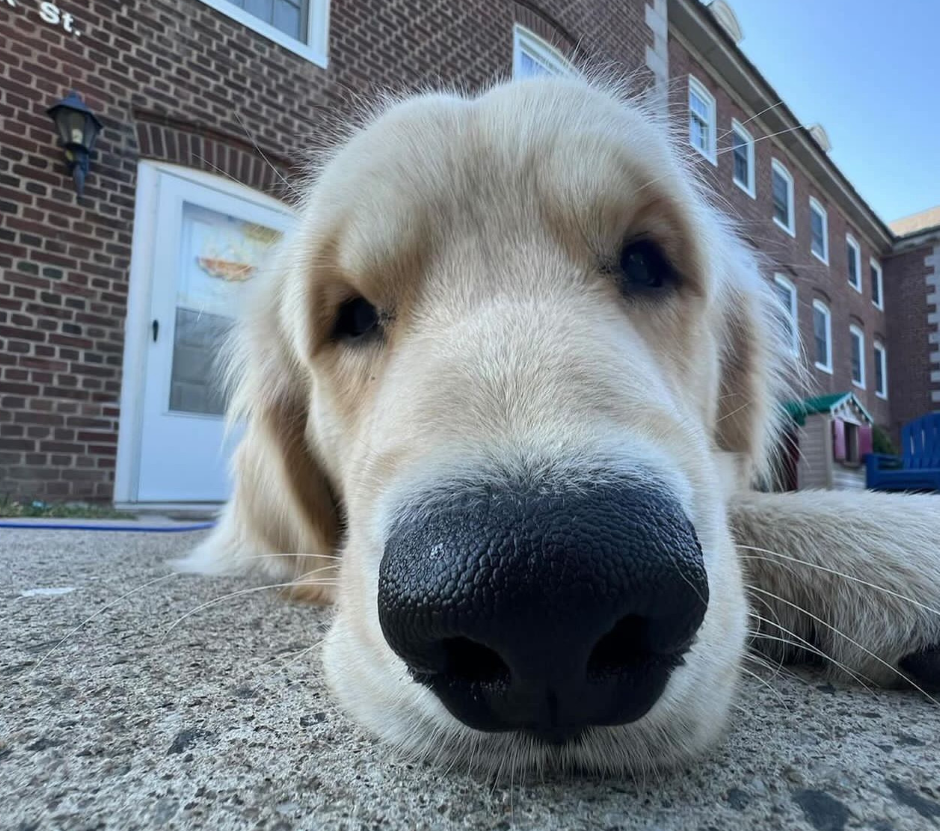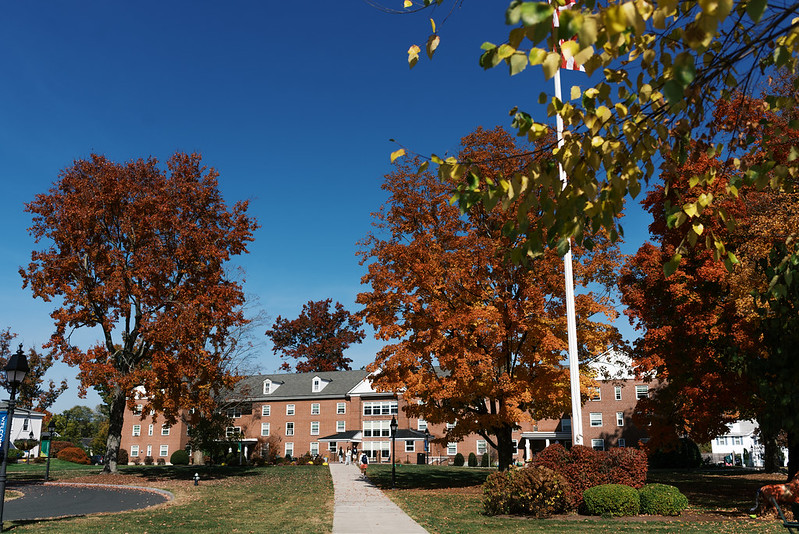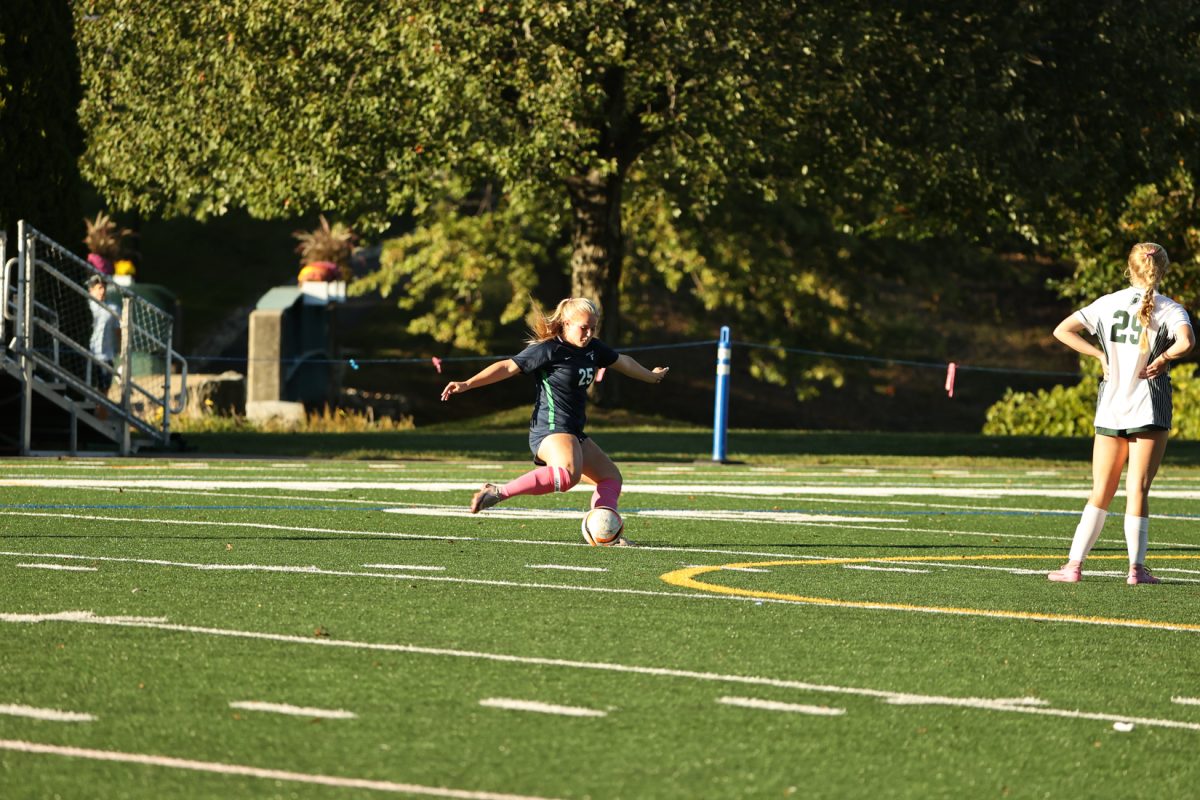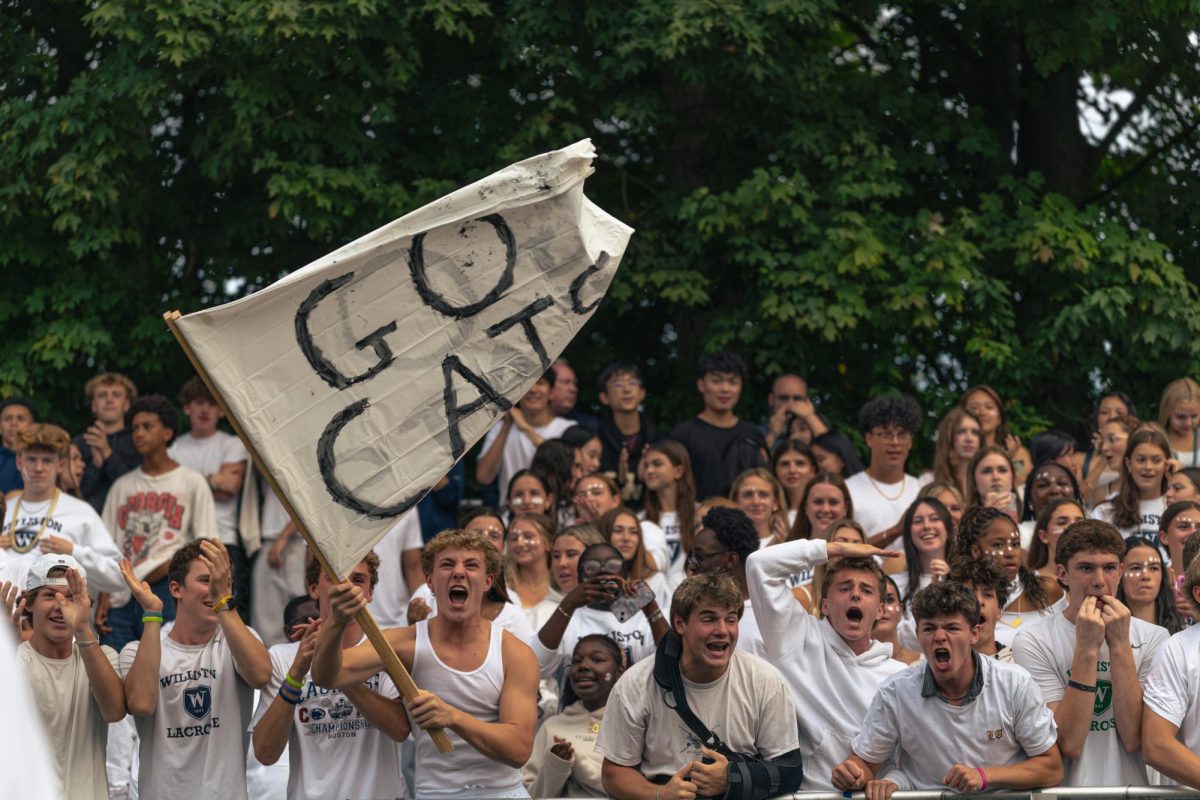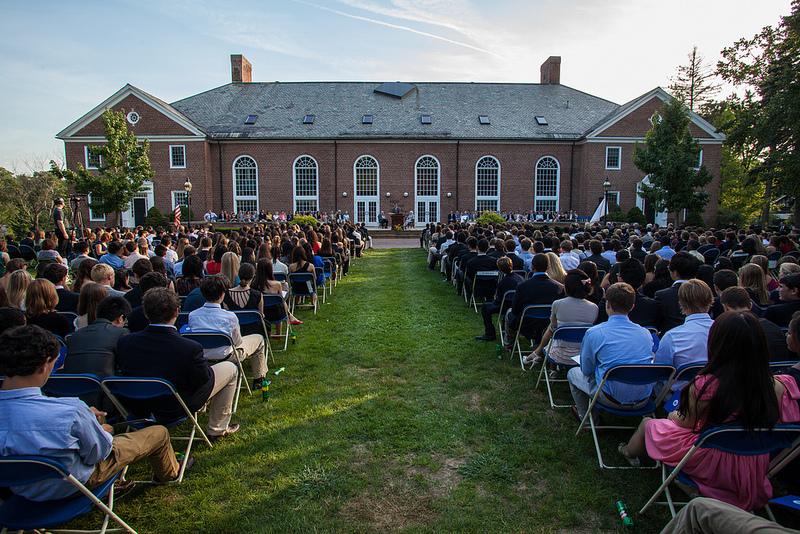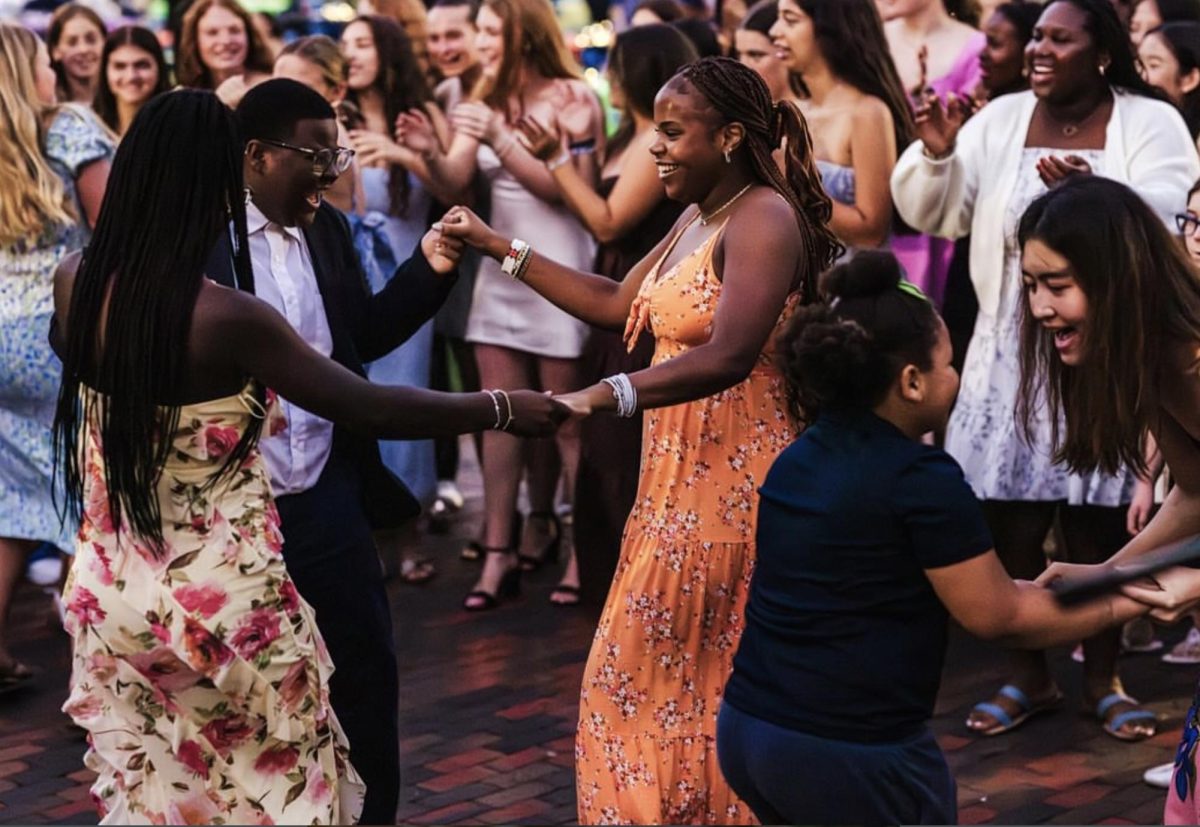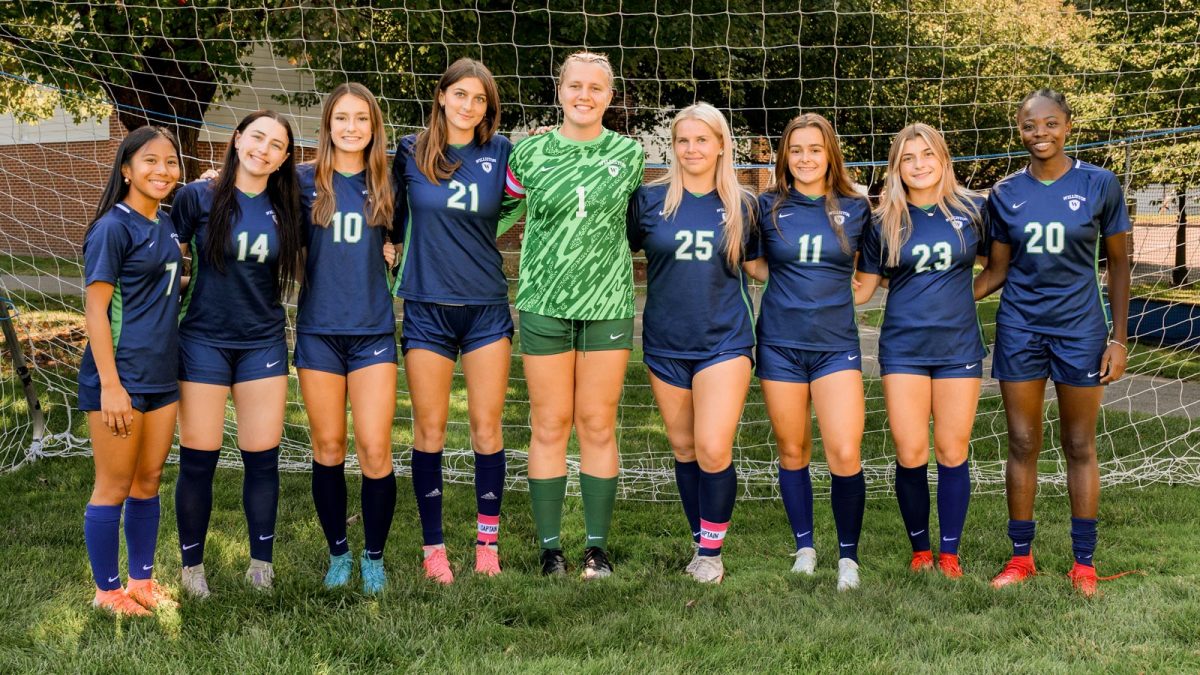From Ford resident “Mushy Max” to college counseling member Otto, dogs are providing a valuable, tangible benefit to student life on Williston’s campus.
There is a good variety of dogs on campus this year. From Black Labs, various colored Doodles, Golden Retrievers, and smaller dogs, dogs elevate students’ sense of home and mental health. Getting to pet and say hi to these dogs, specifically the Beaton’s dog Max and the Hanford’s dog Gracie–who are typically play flighting or napping outside Ford– is a privilege for many and adds levity to what can often be stressful and long school days.
Dogs have been on Williston’s campus for decades. Golden retrievers, specifically, seem to have had a strong reputation. Ms. King has also been known for her golden retrievers over the years; her current dog is a Golden named Maple. There’s also Ms. Chambers’ dog Dolores, Ansel Garvey’s dog Griffin, Ms. Rohan’s dogs Jaxon and Eddie, Ms. Michalski’s dog Emma, Mr. Hill’s dog Romeo, and Sr. Garcia’s four Goldens Lena, Shayna, Beni and Oakley.
This year specifically, however, Max, or “Mushy Max,” seems to be the popular pup.
Robyn Beaton, a member of Williston’s Health and Wellness services, is Max’s dog mom. She loves having him and other dogs on campus.
Beaton emphasizes that “the dogs on campus have made a really positive impact on our community.”
Beaton believes Max has specifically done so “not only because of his gentle and affectionate nature but also because of the location of his home,” which is the corner of Ford Hall, a central area on campus that gets a lot of traffic.
Beaton herself “love[s] watching the interactions between students and Max because there is a mutual excitement and joy.”
“Max is just as happy to see his human friends everyday as they are to see him,” she said.
The pros of having a dog on campus, Beaton describes are “endless.” She mentions how the socialization for Max has shaped him into the “social and friendly” dog he is.
Max also “reminds students of their own pets back at home who are missed so much, and it helps that he’s pretty darn cute, too,” Beaton said.
This love for Max has even spread to social media. An Instagram account titled “Mushy Max” was created this year, the name he is now known for. The Instagram is @mushymaxx. Additionally, Garcia’s Goldens have also made an Instagram account, which is @4garciagoldens.
Sophie Toole, a junior boarder from Nantucket, Mass., mentioned missing her chocolate Lab at home but how she finds it nice to have that same type of “animal companionship on campus.”
“I get really excited every time I see Max…if I’m having a bad day I go over to pet him and it makes me feel better,” Sophie explained.
Charlie Lonergan, part of Williston’s College Advising department, emphasizes the positive aspect of dogs as well. Lonergan’s dog Otto, a Poodle, Labrador, and Cavalier King Charles Spaniel mix, has been making an appearance in college counseling recently. Many stressed out seniors and even adults have appreciated Otto’s visits. Lonergan said how those “in our office love having him around” as he adds an extra sense of “happiness.”
Alyssa Matricciani, a senior boarder from Greenville, S.C., also misses her animals from home but finds comfort when she is around Otto. “I have three dogs, and I really really miss them but it makes me so happy to feel that same energy through Otto,” she said.
Likewise, Lonergan has noticed that Otto provides a lot of relief by letting the many seniors coming in to “forget about everything when he’s there.”
The inclusion of dogs on campus in general, Lonergan agrees, is extremely beneficial besides the fact that “there are some kids that are afraid of dogs.” That challenge aside, Lonergan strongly believes dogs bring a positive energy to campus. “Whether it’s seeing the Beaton’s and Hanford’s dogs on the way to the dining hall,” it is safe to say that “almost everybody loves seeing the dogs.”
Alyssa summed it up well when she claimed how dogs “just boost morale and make students a lot happier to go through their day.”
Meg Colenback, a counselor at Williston’s Health and Wellness services, believes dogs are beneficial for mental health. However, Colenback noted how “it is important to remember that all dogs are not the same, some dogs are not meant to be immersed in a community with kids and teens and are more suited for quieter and more predictable environments. Also, if a dog is not trained properly, it can bring more stress to a community than comfort.”
Still, Colenback also knows that dogs can “decrease levels of cortisol which is a stress related hormone. The simple act of petting a dog can be grounding, meaning help regulate a student’s emotional distress getting them grounded to the experience and feel of the fur. If a student likes dogs, it can also offer an opening for another positive connecting point on campus.”
The National Institute of Health has data to back this up.
“Students who engaged with therapy dogs on campus during the examination period were more likely to have a more positive affect,” their website explains. “The results suggest that universities should include therapy dog programs within their health promotion programs for students, as these may help improve their mood and reduce the stress associated with university examinations.” Though this experiment was performed on collegiate students and more focused on exam stress, it still shows just how much of an impact a single dog can make.
The dogs themselves also love living on Williston’s campus as much as we all love having them. They are critical to Williston, a place that would not be the same without them. Or, as Colenback says, the dogs create “a community within a community,” which leaves a “palpable” impact.



